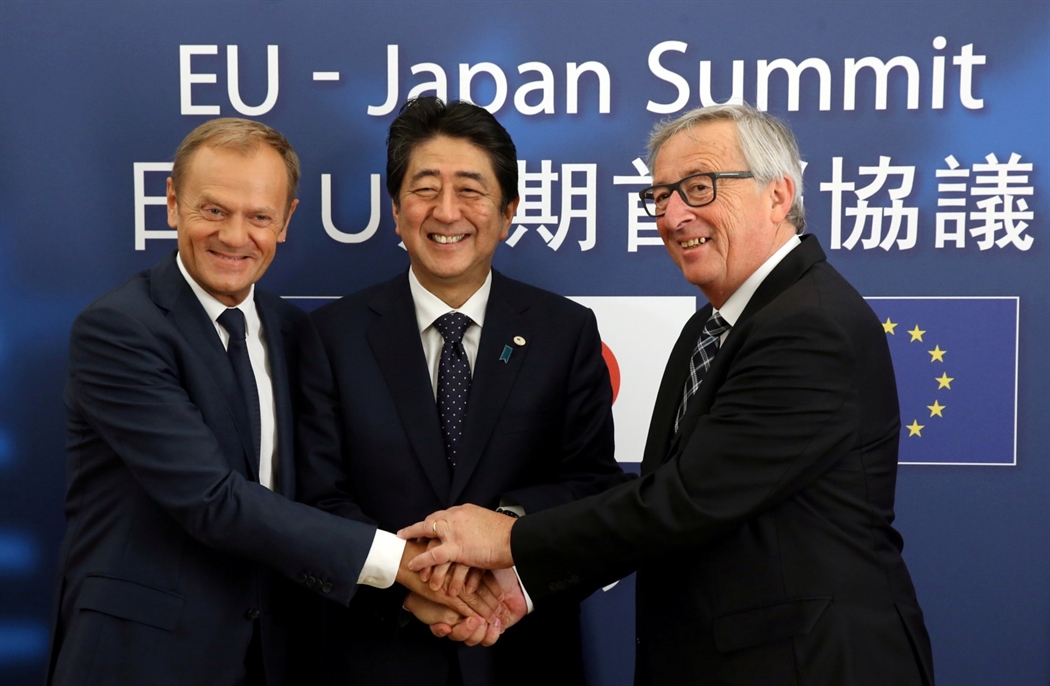The European Parliament’s Trade Committee gave its recommendation to approve the EU’s landmark trade agreement with Japan on Monday. The EU-Japan agreement is the biggest trade agreement ever negotiated by the EU.
It creates a trade zone of 600 million people, and covers a third of global GDP and about 40 percent of global trade. It will eventually remove almost all customs duties worth roughly €1 billion annually on European products and services exported to Japan. The resolution was passed by 26 votes for, nine against, and two abstentions. The recommendation to consent was passed by 25 votes for, ten against, and one abstention.
Fair, rules-based trade
Trade Committee MEPs emphasised that the agreement “represents a timely signal in support of open, fair, values-based and rules-based trade, while promoting high standards, at a time of serious protectionist challenges to the international order”.
The Committee commended Japan for opening up the procurement markets, including in 54 large cities and in the railway equipment sector, allowing EU suppliers to compete on this market. Another sector that trade MEPs estimate would benefit most from the deal is agriculture and the food industry, especially wine, pork, and cheese producers.
For details on the most important achievements of the deal, read the explanatory memorandum of the draft recommendation.
Labour and environment regulations
Labour and environment regulations
MEPs stressed that Japan must comply with all relevant labour codes set by the International Labour Organisation. The two remaining codes which have not yet been ratified by Japan are on discrimination and on the abolition of forced labour.
Small and medium enterprises to benefit soon
The committee urged the Commission to set up contact points for small and medium sized enterprises (SMEs), which figure for the first time in a dedicated chapter in an EU trade deal, so that they can quickly benefit from the agreement. 78% of EU companies exporting to Japan are SMEs.
“Today’s positive vote on the agreement sends a strong signal for fair trade based on rules and values. Our resolution calls on both parties to deliver on their commitments and make the most of the progressive potential of the agreement, ensuring compliance with labour and environmental rules and contributing to the Sustainable Development Goals, ” said Pedro Silva Pereira (S&D, PT), the rapporteur in charge of the topic.
Next steps
The European Parliament, which has to give its consent before the deal can enter into force, is expected to vote on the agreement at its December plenary session. If the deal is approved in Parliament, it can enter into force as soon as the Japanese Diet ratifies it.
Edited by Bouli Hadjiioannou
















